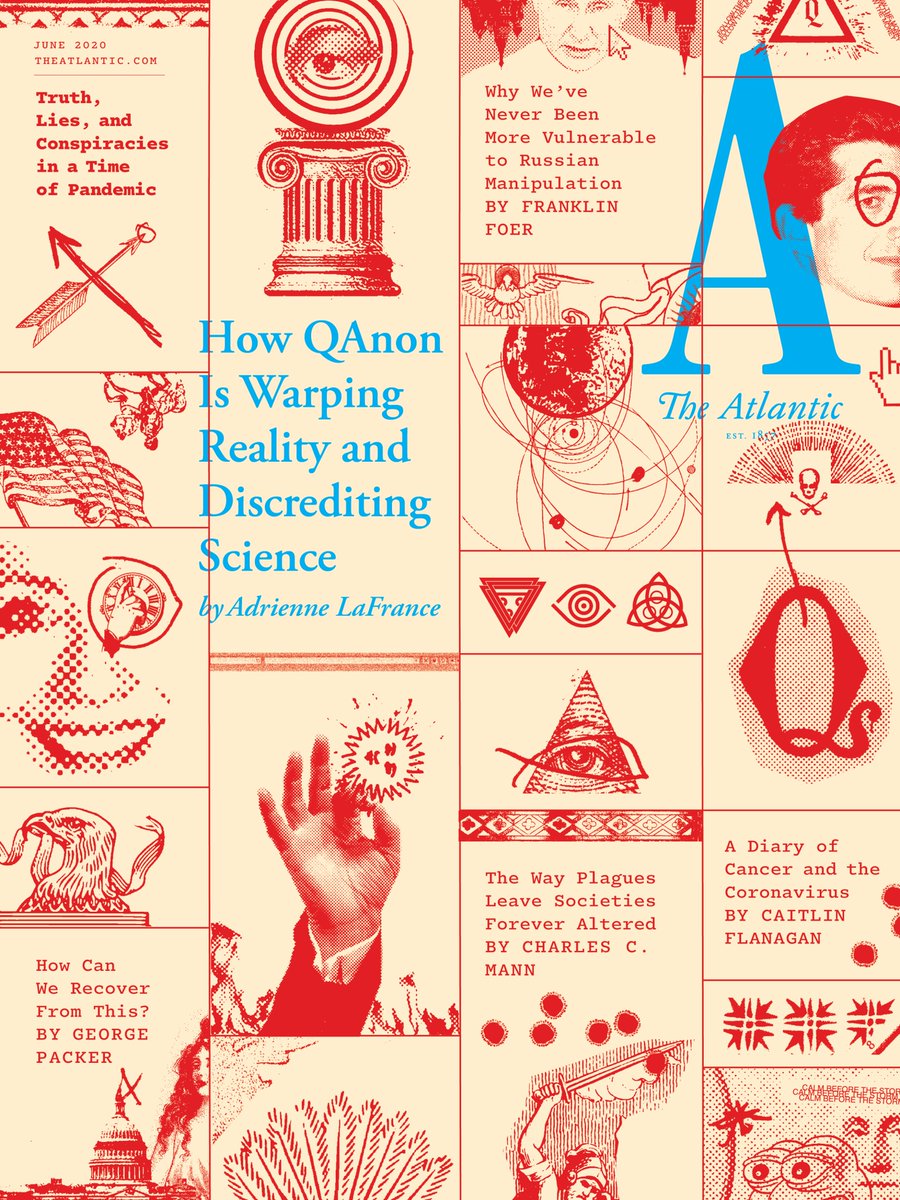
The internet is a miracle. But the social web is so badly broken. My latest feature is about the core problem at the center of that brokenness. (1/7)
I’ve been thinking for years about what it would take to mitigate the harm caused by platforms like Facebook, YouTube, Google, and Twitter. (2/7)
I realized only recently that I’ve been thinking far too narrowly about the problem. I used to argue that Facebook should admit that it is a media company, and take responsibility for its product same way that the editor of a magazine would. (3/7)
(I pressed Mark Zuckerberg on this once and he laughed.)
theatlantic.com/technology/arc… (4/7)
theatlantic.com/technology/arc… (4/7)
In recent years, as Facebook’s mistakes have compounded and its reputation has tanked, it has become clear to me that negligence is only part of the problem. No one, not even Zuckerberg, can control the product he made. (5/7)
Facebook is an agent of government propaganda, targeted harassment, terrorist recruitment, emotional manipulation, and genocide. (6/7)
I’ve come to realize that Facebook is not a media company. It’s a Doomsday Machine. Here’s my story about what that means, and what we should do about it: theatlantic.com/technology/arc… (7/7)
• • •
Missing some Tweet in this thread? You can try to
force a refresh



